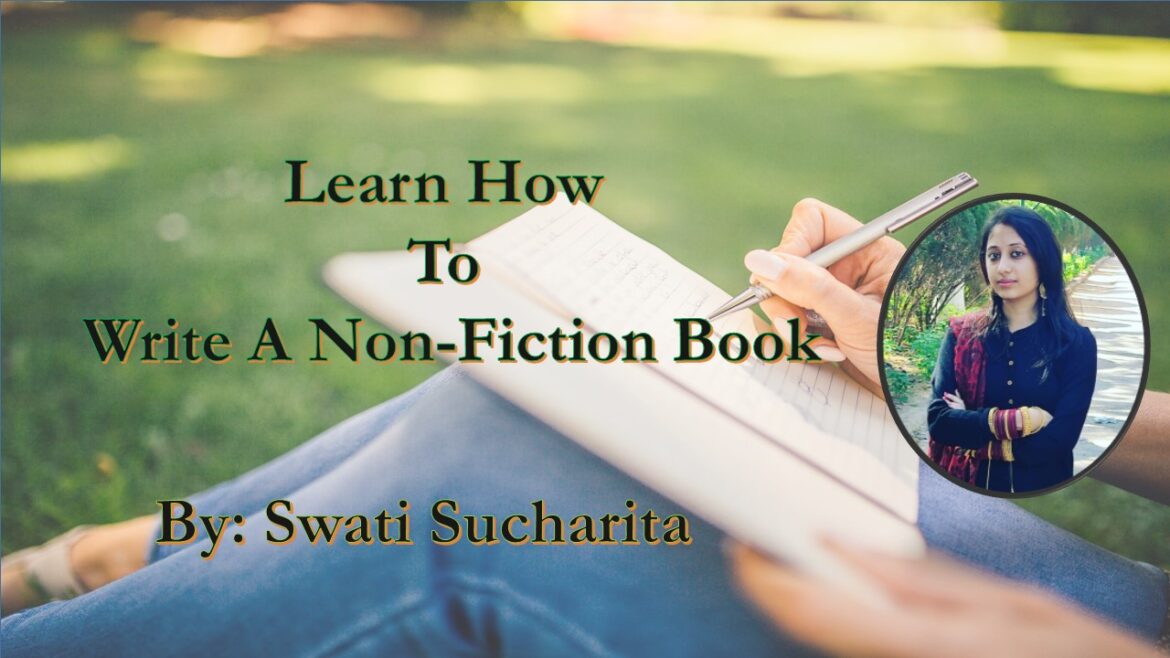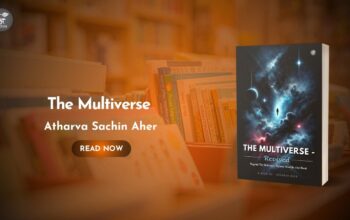Understanding the Genre: –
“Nonfiction” refers to literature based in fact. It is the broadest category of literature.
While fiction, sometimes takes you to the imaginative world, non- fiction unfolds the reality, you get to know real people and their lives. Non- Fiction enlightens one with a specific idea of subjectivity. It gives knowledge in a specific subject which helps in learning new things.
Forms of Non-Fiction –
- Expository Non-Fiction – Historical Events, Fashion Trends, Natural Phenomena, Science and Philosophy, etc.
- Narrative Non-Fiction – Memoirs and Biographies.
- Persuasive Non-Fiction – An Editorial in a Newspaper.
- Descriptive Non-Fiction – Travel Guide
Steps to write a Non-Fiction Book –
Writing a nonfiction is primarily an exercise in research, introspection, and observation. Here’s how it goes-
- Find your story. The first step in coming up with a brilliant book concept is to pay attention to what piques your interest. Podcasts should be listened to. Look into a topic that interests you. Also, be patient with those stray thoughts. You’re severely limiting yourself if you’re only working on information that you find useful right now. You can’t predict what you’ll need later because the pressure is too great. Consider your options and save them for later. Make a back shelf for yourself that’s crammed with all kinds of wonderful stuff.
- Identify your “why”. The “why” lies at the heart of all meaningful creative endeavour: why are you writing this particular book? Think about the story and figure out exactly what you want to express. Consider this the key dramatic question of a novel: you’ll return to this thesis over and over again as you write.
- Determine who you want to reach. Are you aiming your essay at history buffs? What about the self-improvement crowd? Is it a group of academics or a group of casual readers? Are you hoping for a broader audience and a best-seller? Are you writing for a niche or a larger, more general audience? Are you writing for a niche or a larger, more general audience? Holding this group, or person, in mind as you write allows you to further customise your message and writing style.
- Do your homework. Real-world probing and creative brainstorming are combined in research. Visit the library instead of counting on internet searches. The library is brimming with underutilised librarians whose job it is to aid you. If it makes sense, walk past your locality for people who may have witnessed the events you’re writing about and interview them.
- Put the pieces of the narrative together. Any nonfiction author knows how tough it is to create a coherent tale from a mound of data or personal experience. Recite your “why” and come up with a list of the moments that you sense are most essential to the overall impression you would like to leave on your reader. Compile a list of characters, places, and conflict points, then play around with different ways to portray them in an outline.
- Set manageable goals for yourself. Strive to write 500 or 1,000 words a day (depending on what you think you can reasonably accomplish). Having to meet a word count quota will help you get over that perfectionist bug in your ear. Let nothing stop you from hitting your goal—not procrastination, not writer’s block, not even bad writing. You’ll fix it later in the editing process. Just stick to the writing schedule.
- Create chapter summaries. Even a minimal table of contents can often be enough to keep things on track. Put all of the questions you like to solve in your book under the “intro.” Summarize the solutions you intend to provide under “climax.” Working laterally from the conclusions can assist clarify the chapters that follow. What major event do you prefer to concentrate on? What are the efforts you’ll need to execute to get there?
- One chapter at a time, approach your writing. Consider each chapter of a nonfiction book as a separate essay. You begin by delivering the subject of the narrative, detailing its context, and addressing how well it connects to the overarching story. You’ll then set the scene: What are the elements that define this chapter’s subject? What is its background? Then you can present your case: Give more detailed examples that demonstrate the chapter’s main point. If you’re writing a memoir, this could refer to specific events or memories from your life. If you’re writing a presidential biography, you’ll paint scenes from history (this is where all of your interviewing and research comes in handy). If your book aims to teach a skill, the chapter should end with a takeaway or cliff-hanger that leads you into the next chapter.
Conclusion-
Most writers will tell you that writing nonfiction is easier than writing fiction. That’s the good news. The less good news: this does not imply that writing a nonfiction book is any easier.
While fiction writers often use a basic outline and then go wherever the story and characters take them, non-fiction takes careful planning before you even start writing.



